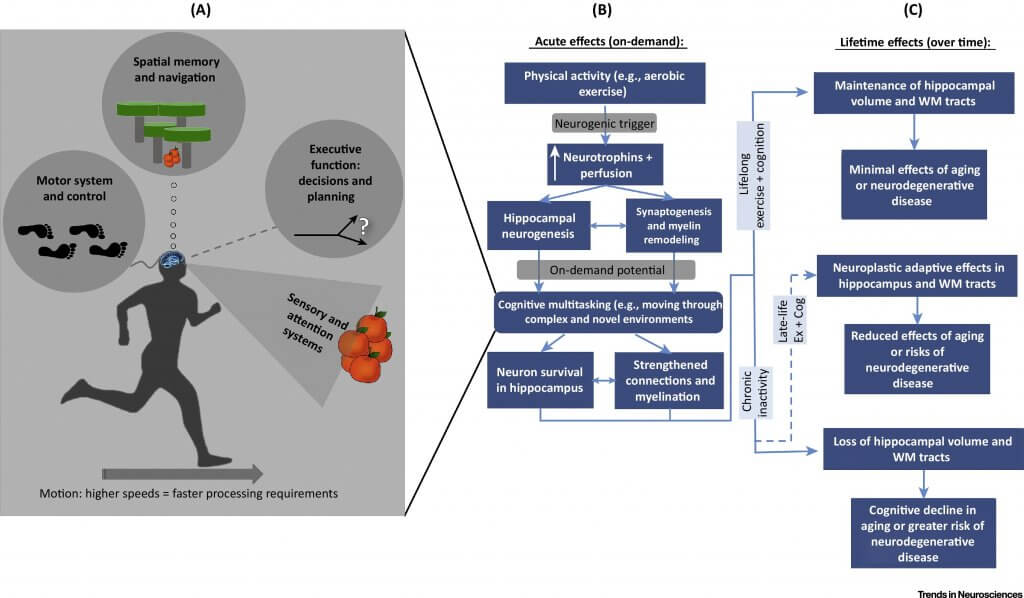Exercise has apparent positive effects on the body, and recent studies show that it can also benefit the mind. But research and understanding explaining the impact of exercise on the brain is lacking. So, University of Arizona researchers conducted a study to explain how and why exercise is beneficial to cognitive health.
UA associate professor of anthropology David Raichlen and UA professor of psychology Gene Alexander developed an “adaptive capacity model” coupling exercise’s positive impact on the brain with human’s evolutionary history as hunters and gatherers.
The researchers claim that physical activity and the brain first became so connected 2 million years ago when humans evolved from a sedentary ape-like lifestyle to become foragers. The hunter-gatherer lifestyle is much more physically and mentally demanding than stagnant ape-like existence.
“We think our physiology evolved to respond to those increases in physical activity levels, and those physiological adaptations go from your bones and your muscles, apparently all the way to your brain,” Raichlen said in a statement. “Foraging is an incredibly complex cognitive behavior. You’re moving on a landscape, you’re using memory not only to know where to go but also to navigate your way back, you’re paying attention to your surroundings. You’re multitasking the entire time because you’re making decisions while you’re paying attention to the environment, while you are also monitoring your motor systems over complex terrain. Putting all that together creates a very complex multitasking effort.”
Thinking about the relationship between exercise and the brain from an evolutionary perspective helps explain how the mind reacts and benefits from physical activity. The areas of the brain used for memory, problem solving, and planning are all required for foraging. They are the same areas that profit from exercise.
“Exercise seems to benefit the brain through multiple mechanisms,” Raichlen told TUN. “These include increases in blood flow and triggering the production of beneficial proteins that can lead to the generation and protection of new neurons in certain parts of the brain.”
Positive Effects on Aging
Studies have shown that exercise can also have a positive impact on brain function in aging adults. Through this understanding, researchers can develop ways for physical activity to aid those with declining cognitive health and neurodegenerative diseases, such as Alzheimer’s.
As people age, they tend to become less active. When the brain and body aren’t put through the same physical and mental stresses as they once were, they begin to wear down.
“Our evolutionary history suggests that we are, fundamentally, cognitively engaged endurance athletes, and that if we don’t remain active we’re going to have this loss of capacity in response to that,” Alexander said in a statement. “So there really may be a mismatch between our relatively sedentary lifestyles of today and how we evolved.”
In the future, the researchers will analyze how different types and intensities of exercise will affect the brain.
“By helping us understand how and why exercise can benefit the brain, we can start developing novel interventions that may improve the effects of aerobic exercise on the brain,” Raichlen explained to TUN.
“We are continuing to examine the effects of exercise on the brain across the lifespan. Through this work, we hope to clarify mechanisms that link brain benefits to physical activity and generate new exercise programs that more carefully target brain health, especially in older adults.”




